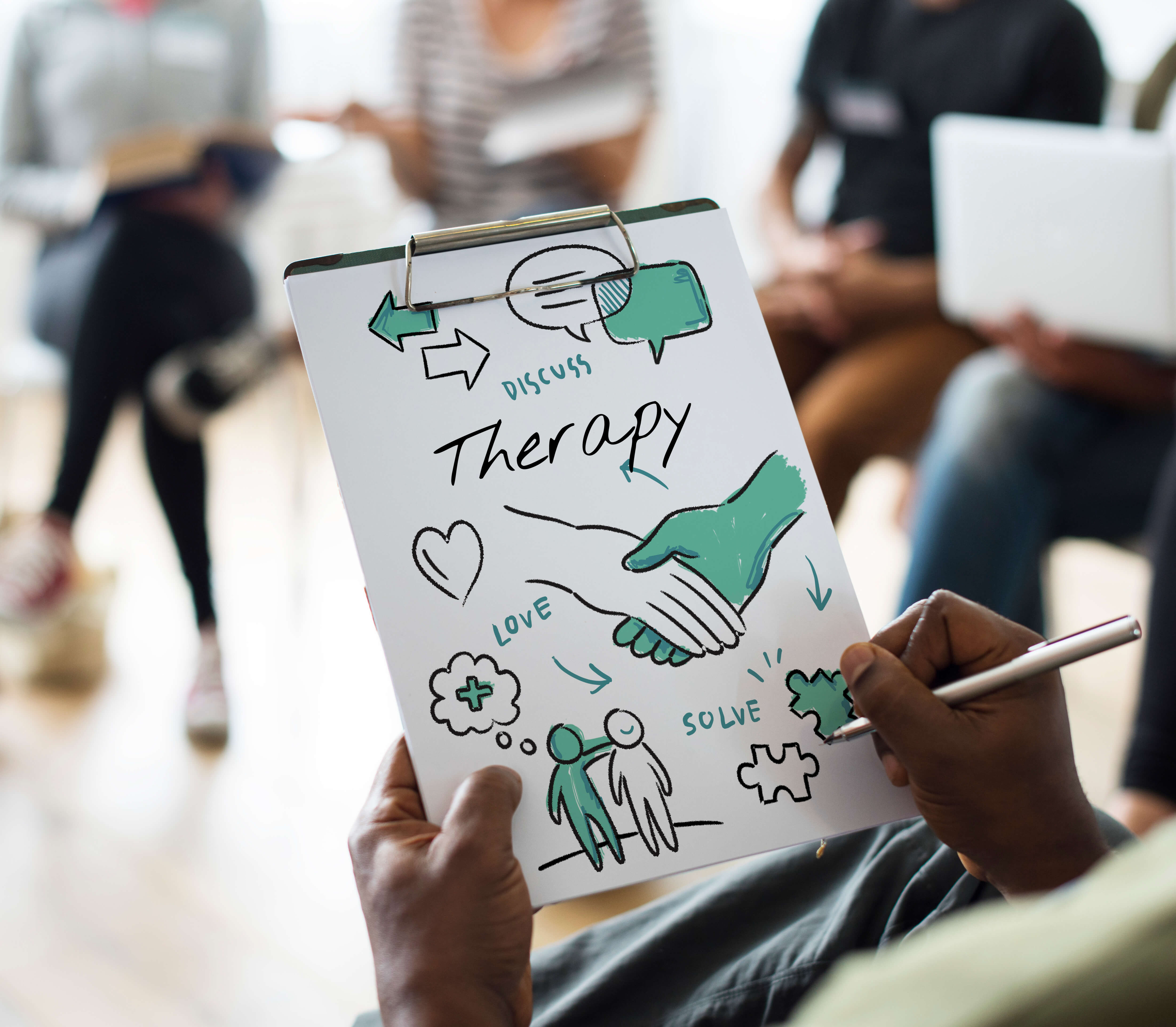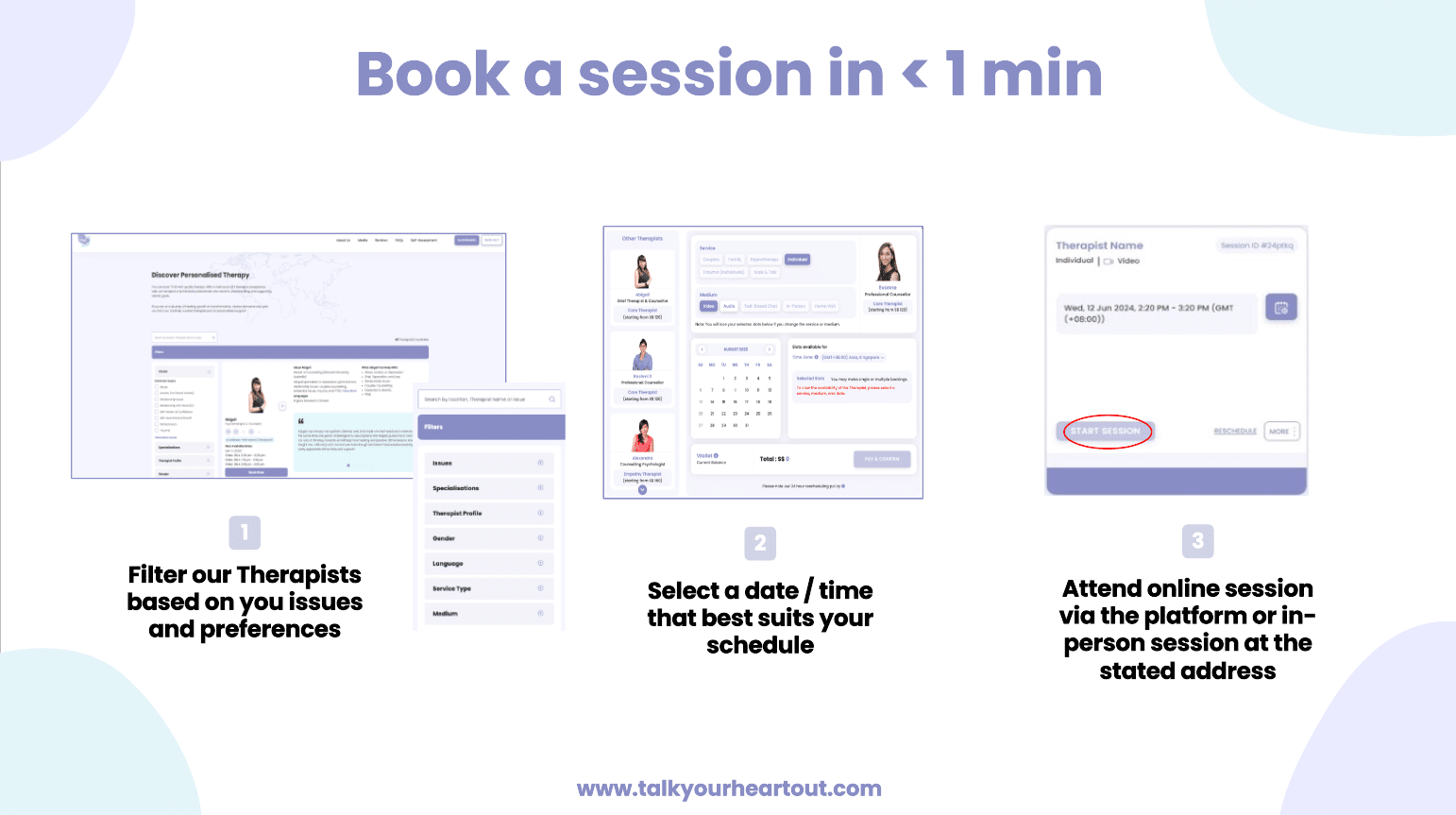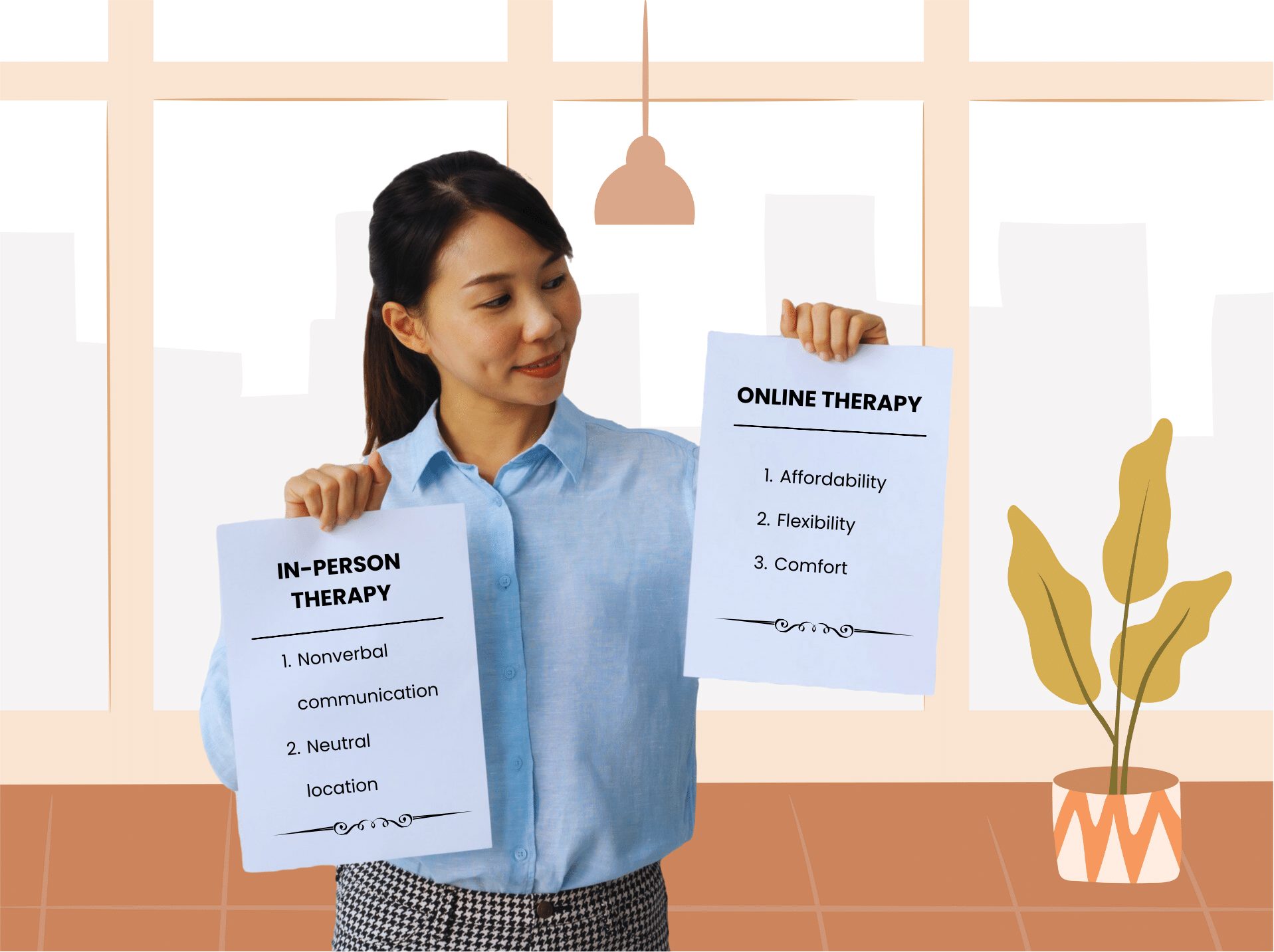- Published on 30 January 2025
Talk therapy has many different approaches: The cognitive therapist focuses on thought patterns, the behavioural therapist focuses on reinforcing adaptive behaviours, the person-centred therapist focuses on self-exploration, and so on.
Every online therapist uses these approaches in a unique way to provide the best possible therapy service to their clients.
Given this rich scope of choice, how can clients tell the difference between a good and a bad therapist? What makes a good therapist?
The specific answer to this question depends on your preferences. For example, if you prefer to take a practical route in healing, a therapist who provides an emotionally focused approach may not be a good choice.
But underneath the diversity – all good therapists share some core traits and principles.
Below is a list of these 10 essential qualities of a good online therapist.
This Article Contains:
1. Your Online Therapist Actually Listens
Listening to what you say must be the easiest skill to notice, don’t you think? Not quite. During online therapy, listening is not just hearing and acknowledging what clients say.
It’s more about therapists adopting their client’s feelings, values, and perspectives about the world. Only through active listening can therapists use their empathic skills to understand the depth of the client’s emotions.
A mental health therapist’s main indication that reflects active listening is providing undivided attention to you.
What listening looks like during online therapy
After you share your concerns in therapy, notice the following:
- If your therapist provides suggestions or feedback by interrupting you, they may not be actively listening.
- If your therapist uses nonverbal communication, such as eye contact, nodding, or facial expressions while you open up and reflect on or summarise your concerns verbally after you’ve finished talking, they are actively listening to you.
If you notice that the online therapist is constantly distracted by checking the clock or shifting focus to other objects in the room, it may be a sign that you need to find a new therapist.
2. Your Online Therapist Promotes Curiosity & Self-Reflection
Good therapists in Australia create a dynamic that provides space for curiosity and self-reflection for clients.
Receiving effective therapy services results in:
- Learning how to intentionally focus your attention inward
- Thinking critically about your thought patterns
- Discovering solutions by reflecting on previous experiences
Providing this open space of exploration also means that the therapist respects your agency while guiding you towards the most helpful direction.
For example, consider whether your mental health therapist is:
- Open to feedback on their online therapy style
- Willing to guide you to make choices about your own therapeutic plan
- Accepting your decision to put therapy on pause for a few weeks
A good therapist will accept your curiosity about yourself, your life, and even the therapy process.

3. You Feel Heard & Validated
Feeling validated and heard during online therapy in Australia means that the therapist encourages and unconditionally supports your experiences.
If you feel validated, your bond with the therapist improves. If your therapeutic bond improves, you may scientifically benefit from positive therapy outcomes.
Ask yourself: Do I feel supported when I explore or express my deepest thoughts?
If yes, this is where the therapeutic change and growth happen, and you are with the right online therapist.
Therapists may also disagree with you while avoiding major conflicts. The key point to observe is whether you feel cared for and supported even when your therapist respectfully challenges your beliefs.
Try to observe the below statements. These are some indications that you feel heard during therapy in Australia:
- “I can see you’re having a difficult time right now.”
- “I understand that you’re feeling __. What do you need right now emotionally?”
- “You feel frustrated to always be the one to reach out to your friends, and you would like things to change.”
- “Ignoring your dad because of a fight hasn’t worked out for you in the past. Could we explore a therapeutic technique to resolve the conflict?”
- “I believe in your ability to change and grow.”
4. The Therapist Is a Strong Communicator
A good therapeutic relationship is built through effective communication.
An online therapist in Australia is a strong communicator if they can move from understanding you as an individual to putting that understanding into accessible words.
This means that the professional should be able to distil concepts and explain your emotional or behavioural patterns in a way you can understand.
Consider the following below:
- Does your therapist explain concepts in simple terms or use scientific terminology? They’re a strong communicator if they explain psychological details in simple terms.
- How much does your therapist talk? The rule of thumb is that clients usually speak more than the therapist.
- What is the focus of the therapy session? Sessions should always focus on the client and their problems.

Talk to a TYHO Therapist about anxiety, low self-esteem, relationship issues, and more. You are not alone.

5. You Feel Encouraged to Communicate Honestly
Communication goes both ways: as a client, you should also feel safe and encouraged to open up during therapy services.
Below are some questions and pointers to help you identify if the therapist is good at facilitating open communication:
- Does your Australian therapist ask you specific and focused questions rather than very open-ended ones?
- Is your therapist welcoming? For example, if you speak casually and like to joke around a bit, your therapist should also adapt to your style. Similarly, therapists should adopt a calm and composed approach if you are introverted. Identify if there’s a gap in communication between you and your therapist.
- Is your therapist patient, and do they give you enough time to collect your thoughts?
6. Your Online Therapist is Open to Receiving Feedback
A good therapist in Australia will see therapy as a collaborative space between them and you and will always prefer that you lead the direction and pace of the sessions.
A strong indicator of whether your therapist is willing to receive feedback is how often they check in with you to see how you’re feeling about therapy.
Below are two key points to help you identify a good therapist:
- Does your therapist ask questions about the benefits you’ve received so far from therapy?
- Does your therapist adjust the therapeutic approach based on your feedback?
While your therapist could be an expert in their chosen modality, you are the expert in your own life.
Hence, your therapist should admit when they don’t know something about you and accept your feedback to improve the therapy experience.
By being open to receiving feedback and continuously increasing their knowledge, the therapist also shows that they’re interested in you and invested in your progress.
7. The Therapist Encourages Your Self-Reliance & Competence
Receiving affordable therapy means that you are progressing towards improving your independence, self-reliance, and competence.
To identify if your online therapist is good in this context, ask yourself:
- Do I have more self-doubt when I encounter life issues?
- Do I rely on my therapist as the first solution to overcome my problems?
Consider looking for a different professional if you answered yes to both.
As you work towards your life and therapy goals, your self-reliance should increase, and your dependency on the therapist should decrease.
Therapy is a tool to guide you towards problem-solving rather than prescribing solutions.
“In my early professional years I was asking the question, How can I treat, or cure, or change this person? Now I would phrase the question in this way: How can I provide a relationship which this person may use for his own personal growth?”
Carl Rogers, 1961/1995, p. 32
8. The Online Therapist is Invested in Your Progress
A good therapist in Australia will be invested in your progress by proactively checking in and providing unconditional support.
Regularly monitoring a client’s progress during online therapy is integral to providing good mental health support.
For example, some of the things therapists may do to indicate their interest include:
- Noticing the times you’re not doing well and providing appropriate tools to cope with it, even if it means changing the pace of the session occasionally
- Taking therapy slowly and re-evaluating the therapeutic plan as time passes
- Accepting your emotions and thoughts regardless of the intensity and showing curiosity and interest in exploring your way of thinking
9. You Receive Unconditional Support
Unconditional positive regard refers to the mental health therapist’s complete acceptance and support toward the client.
In therapy in Australia, providing this support means that you have the space to nurture yourself, feel valued, and build self-trust.
To identify if your therapist is good in this aspect, ask yourself:
Do I feel supported and validated in therapy no matter what I share or say?
If yes, then you may have found a good online therapist.
However, part of the therapist’s job is also to gently guide you towards identifying and changing maladaptive behaviour. To do so, they may work with you to:
- Understand the things that you are doing
- Respectfully challenge your beliefs
- Acknowledge and change any harmful behaviour that may not be good for you or the people around you

10. You Notice a Change in Yourself
Change requires not only emotional talk but also doing something completely different within yourself, within online therapy, and out in the world.
Noticing change within yourself means:
- Integrating therapeutic tools into your daily life
- Proactively assessing your thoughts and feelings
- Constantly challenging your beliefs about yourself and the world
- Navigating what matters most to you personally, socially, and professionally
- Using previous life experiences as evidence and strategically modifying your behaviour in new ways
All the above is made possible by a good online therapist.
That said, meaningful change takes time. Research indicates that it takes 10 to 15 sessions to notice progress in therapy.
Especially in the beginning, changes you notice may be small – however, they’re no less significant.
In this regard, a therapist’s job is to provide the right conditions and space for natural growth.
Can you imagine yourself as a caterpillar? You don’t need to do anything extraordinary to transform into a butterfly. The change occurs effortlessly, given the right conditions for the cocoon. And humans are much the same way.
If you want to experience the kind of change described here, our Therapists in Australia can help.
Conclusion
A good therapist will always:
- Make you feel heard and supported
- Encourage honest communication
- Guide you towards self-reflection
- Empower you to be self-reliant
- Be open to feedback and collaboration
Good Therapists in Australia will show high ethical standards by being reliable, trustworthy, and non-judgemental.
If your therapist has all these core traits, you can rest easy knowing you are in good hands.
If your therapist lacks in any of these areas, try to bring it up during a session. Sometimes, all it takes to reset the direction of therapy involves the client opening up about what’s not working for them.
However, it may be time to find someone else if the therapist does not respond positively to your feedback.
At TYHO, we have a vetted team of well-qualified, affordable Therapists. Book a session today if you are ready to start your journey toward personal growth.






















